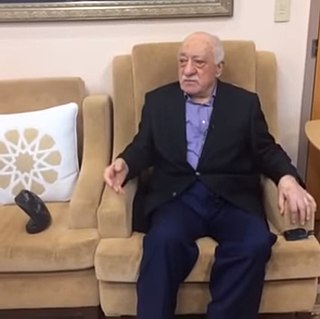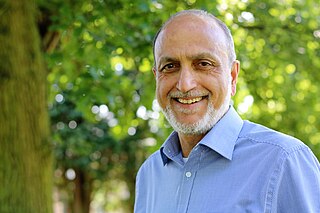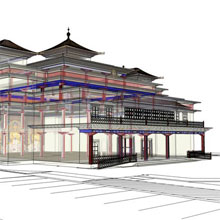 W
WInterfaith dialogue refers to cooperative, constructive, and positive interaction between people of different religious traditions and/or spiritual or humanistic beliefs, at both the individual and institutional levels. It is distinct from syncretism or alternative religion, in that dialogue often involves promoting understanding between different religions or beliefs to increase acceptance of others, rather than to synthesize new beliefs.
 W
WThe All Nations Café was a cultural hospitality project founded by a team of Israelis, Palestinians and internationals in East Jerusalem in 2003, during the Second Intifada.
 W
WMuhammed Fethullah Gülen is a Turkish Islamic scholar, preacher, and a one-time opinion leader. Gülen is designated an influential Ottomanist, Anatolian panethnicist, Islamic poet, writer, social critic, and activist–dissident developing a Nursian theological perspective that embraces democratic modernity, as a citizen of Turkey he was a local state imam from 1959 to 1981. Over the years, Gülen became a centrist political figure in Turkey prior his there being as a fugitive. Since 1999, Gülen has lived in self-exile in the United States near Saylorsburg, Pennsylvania.
 W
WInterfaith relations in Kazan describe the status of the two major religious groups that inhabit the capital city of Kazan, Tatarstan, in Russia. This region is populated by roughly even numbers of ethnic Tatars (42%), whose primarily religion is Sunni Islam, and ethnic Russians (50%), whose primarily religion is Eastern Orthodox Christianity.
 W
WDavid A. Kerr was a British scholar of Christian-Muslim relations and world Christianity.
 W
WMersin Interfaith Cemetery, is a burial ground in Mersin, Turkey. It is notable for being a common cemetery of all religions and includes graves of Muslims, Christians, and Jews.
 W
WThe Millennium Peace Summit of Religious and Spiritual Leaders was held in New York City between August 28–31, 2000. The meeting recognized the importance of religion to world peace and faith leaders’ commitment to peacekeeping, poverty relief, and environmental conservation. It preceded the Millennium Summit, which commemorated the 50th anniversary of the United Nations (UN).
 W
WQantara.de is an Internet portal in German, English, and Arabic, designed to promote intercultural dialogue between the Western and Islamic worlds.
 W
WThis article describes the relations between the Seventh-day Adventist Church and other Christian denominations and movements, and other religions. Adventist resist the movement to full ecumenical integration with other churches, believing that such a transition would result in a renouncing of its foundational beliefs and endanger its distinctive message. According to one church document,"The ecumenical movement as an agency of cooperation has acceptable aspects; as an agency for organic unity of churches, it is much more suspect."
 W
WAtaullah Siddiqui was a Muslim scholar and academic who did much to promote interfaith relations.
 W
WThe Temple for Peace is a construction project of the congregation Vajradhara-Ling in Normandy to promote world peace. The cornerstone was laid in 2003 and construction started in 2010. This Temple will be built in the same style as the Samye monastery, the first temple built in Tibet that was founded by Padmasambhava in the 8th century CE.
 W
WThe Temple of All Religions or the Universal Temple is a unique architectural complex in the Staroye Arakchino Microdistrict of Kazan, Russia. It consists of several types of religious architecture including an Orthodox church, a mosque, and a synagogue, among others. It is currently under construction since 1992, started by local artist and philanthropist Ildar Khanov. The structure now serves as a cultural center and a residence for Khanov's brother and sister, who both continue to serve as guides and supervisors of the complex.
 W
WTikkun is a quarterly interfaith Jewish left-progressive magazine and website, published in the United States, that analyzes American and Israeli culture, politics, religion, and history in the English language. The magazine has consistently published the work of Israeli and Palestinian left-wing intellectuals, but also included book and music reviews, personal essays, and poetry. In 2006 and 2011, the magazine was awarded the Independent Press Award for Best Spiritual Coverage by Utne Reader for its analysis of the inability of many progressives to understand people's yearning for faith, and the American fundamentalists' political influence on the international conflict among religious zealots. The magazine was founded in 1986 by Michael Lerner and his then-wife Nan Fink Gefen. Since 2012, its publisher is Duke University Press. Beyt Tikkun Synagogue, led by Rabbi Michael Lerner, is loosely affiliated with Tikkun magazine. It describes itself as a "hallachic community bound by Jewish law".